#water resources
Text
Thematic Report to the 79th session of the United Nations General Assembly “Water and food nexus: a human rights approach to water management in food systems”.
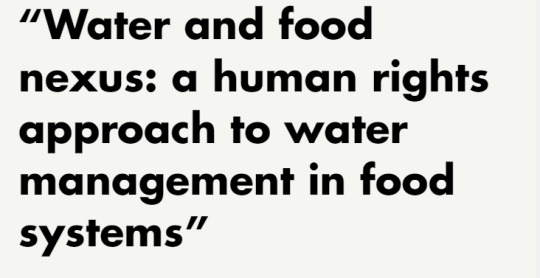
The Special Rapporteur on the human rights to safe drinking water and sanitation, Pedro Arrojo Agudo, is inviting inputs from States and other stakeholders to inform his thematic report on “Water and food nexus: a human rights approach to water management in food systems”. The report will be presented at the United Nations General Assembly's 79th session in October 2024.
The Special Rapporteur on the human rights to safe drinking water and sanitation understands that the dominant systems of large-scale food production and comercialication are harming the human rights to safe drinking water and sanitation worldwide. For the Special Rapporteur, under the argument of producing more and more food for a growing world population, the right to food is often used as an argument to justify unsustainable water management, overusing water sources and affecting aquatic systems, resulting in contamination or scarcity of water needed for human use. As reflected in Special Rapporteur´s report A/HRC/54/32 of 2023, guaranteeing the human right to water for the most impoverished requires restoring the good state of the aquatic ecosystems on which they depend for their water supply. In addition, over-exploitation and pollution of aquatic ecosystems often undermine small-scale food production for self-consumption in impoverished rural communities.
In this connection, the Special Rapporteur would like to call member states, non-state actors, civil society, academia, indigenous peoples, individuals, and other relevant stakeholders to send their contributions and experiences related to the sustainability of aquatic ecosystems and freshwater sources and the systems used to produced food. The Special Rapporteur would appreciate receiving inputs on the interlinkages between both rights and the positive and negative experiences on sustainable (or unsustainable) use of water sources by food systems, including court rulings at global, regional, national, and local levels.
The Special Rapporteur wishes to thank States, indigenous peoples, civil society organisations, academic institutions, businesses, international organisations, individuals, and other stakeholders for their continued engagement with this mandate.
Key information sought: To facilitate the reception of inputs, the Special Rapporteur prepared a list of key information which he considers essential for the report. The list could be answered entirely or partially according to the expertise and experience of those actors willing to contribute to the Report. List of topics: English | Français | Español
How inputs will be used
All submissions will be published on the website of the mandate. Non-state actors could request the confidentiality of the submission.
Next Steps
Please send your contributions via email, indicating “Input Water and Food Nexus” in the email subject line. Your contribution should be sent by no later than 15 March 2024
Email address: [email protected] AND to [email protected].
Email subject line: Input water and food nexus
Word limit: 2500 words
File formats: Word, PDF
Accepted languages: English, Spanish, French
#Special Rapporteur on the rights to water and sanitation#sdg6#water resources#water governance#human rights approach#call for imputs#safe drinking water#OHCHR#Water and Food Nexus#UNGA79#water management#water goals#member states#non-state actors#civil society#academia#indigenous peoples#individuals#stakeholders
16 notes
·
View notes
Text

sunset on red sky
#nature#serene#peaceful#outdoors#landscape#beauty#photography#fantasy#sky#river#water reflection#water resources#water#coulds#red sky
25 notes
·
View notes
Text
The Impact of Climate Change on Water Resources

Climate change
Climate change is causing significant impacts on our water resources, and the need for sustainable water management practices has never been more critical. Rising temperatures, changing precipitation patterns, and extreme weather events are making it more challenging to manage our water resources effectively. The challenges brought by climate change have made it imperative for water resource management companies like Pape Dawson Engineers to develop sustainable solutions that address the impacts of climate change on our water supply.
Droughts are becoming more frequent and severe due to climate change, and this is affecting the availability of water resources. Droughts can reduce water availability, leading to increased competition for water resources. This can affect agricultural production, energy generation, and public health. Pape Dawson Engineers recognizes the need for a reliable water supply during periods of drought, and they offer comprehensive drought planning and management services to help communities maintain a reliable water supply.
Another significant impact of climate change on water resources is the increased risk of flooding. Extreme precipitation can lead to flash flooding, damaging infrastructure, and causing significant economic and social impacts. Pape Dawson Engineers specializes in floodplain management and modeling, erosion control, and stormwater design and management, helping communities develop strategies to minimize flood damage and enhance the resilience of their infrastructure to extreme weather events.
6 notes
·
View notes
Text
Just let me be, says the Treekind to the Humankind. Let me be your keeper, brother.
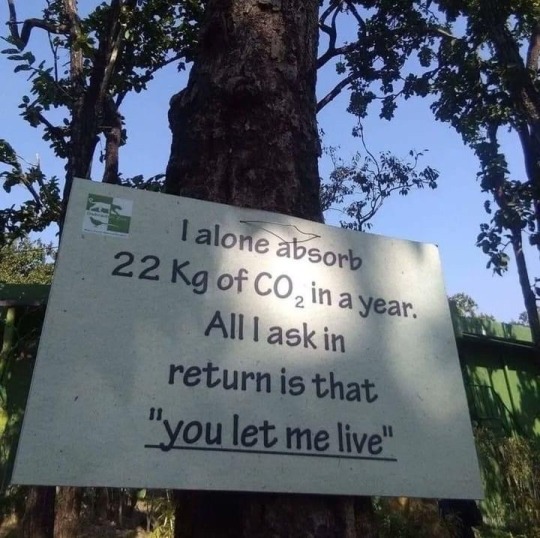
View On WordPress
#bees#carbon sink#clean air#climate change#co2 emissions#deserts#food security#forestation#oxygen#sustainable development#transpiration#trees#water resources
7 notes
·
View notes
Text
New study finds that nearly half of U.S. tap water is contaminated with ‘forever chemicals’
#water#water source#tap water#bottled water#water reservoir#water resources#water restoration#water resource#water reserves
2 notes
·
View notes
Text
2 notes
·
View notes
Photo

Tbilisi
#Any Vision#Labels#atmosphere#blue#calm#computer wallpaper#daytime#light#marine biology#reflection#sea#sky#sunlight#water#water resources#wave
3 notes
·
View notes
Text
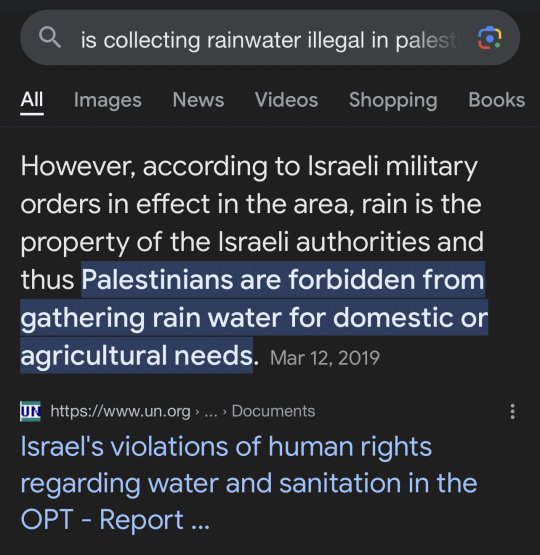
Reminder that in Gaza alone, around 90-95% of the water supply is contaminated and unfit for human consumption...
If you dont believe israel is capable of this evilness (that they've been enforcing for OVER 50 YEARS) read it for yourself, from AMNESTY INTERNATIONAL
#cant make this shit up#they're truly evil#current events#israel#gaza#jerusalem#palestine#idf#humanity#water#resources#human rights
27K notes
·
View notes
Text
To safeguard our future, we must unite in action.
The air we breathe, the water we drink, the food on our tables, the medicines that heal us, the livelihoods we depend on — are all provided by Earth's ecosystems, on which humanity’s survival depends. UN Environment programme.
Follow the conversation witg the hashtags #ForNature.

#fornature#united nations environment programme#water resources#river basins#rivers#water bodies#take action#clean river
0 notes
Text
The Nile: A Lifeline Under Pressure
The Nile River, snaking through northeastern Africa for over 6,600 kilometers, is a lifeblood. Its waters nurture crops, quench thirst, and have shaped the course of civilization for millennia. But this vital resource is facing a growing challenge: geopolitics.
Egypt, with 95% of its land desert, depends almost entirely on the Nile for survival. Historically, upstream countries like Ethiopia and…
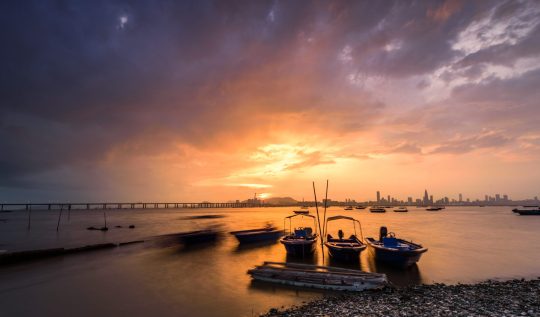
View On WordPress
0 notes
Text
2nd session, 14th Meeting of the Task Force on Water and Climate.
The fourteenth meeting of the Task Force on Water and Climate aims to discuss, plan and provide guidance to the implementation of the activities on Water diplomacy and Climate change under the programme of work for 2022-2024 of the Water Convention as well as to the planned activities under the next programme of work for 2025-2027 of the Water Convention. UN Web TV
Watch the 2nd session, 14th Meeting of the Task Force on Water and Climate.
#task force#Task Force on Water and Climate#water resources#water management#sdg6#groundwater#water convention#water and climate#climate change#plenary session
8 notes
·
View notes
Text
OpenAI boss Sam Altman wants $7tn. For all our sakes, pray he doesn’t get it | Artificial intelligence (AI) | The Guardian
Once upon a time, nobody outside tech circles had heard of Sam Altman. But then his company, OpenAI, launched ChatGPT, and suddenly he was everywhere – touring the world, giving interviews to gushing journalists, granting audiences to awestruck politicians etc. Whiplash-thin, with a charmingly wide-eyed baby face, he instantly became the acceptable face of digital capitalism.
Then the OpenAI board abruptly fired him, apparently on the grounds that he had not been, er, entirely candid with them.
When Satya Nadella, Microsoft’s CEO (who had invested $13bn in OpenAI), heard about it, though, he was mightily pissed off. And in no time all, Altman was unsacked and reinstated in the OpenAI driving seat. And the world was transfixed by the drama of it all. Which only goes to show that appearances can be deceptive.
If the world had read Tad Friend’s profile of Altman, which appeared in the New Yorker in 2016, it might have been less overawed.
“I have narrow interests in technology,” he told Friend. “I have no patience for things I’m not interested in: parties, most people. When someone examines a photo and says, ‘Oh, he’s feeling this and this and this,’ all these subtle emotions, I look on with alien intrigue.” Altman’s great strengths, concluded Friend, “are clarity of thought and an intuitive grasp of complex systems. His great weakness is his utter lack of interest in ineffective people, which unfortunately includes most of us. I found his assiduousness alarming at first, then gradually endearing.”
Two recent events suggest that it might be time to dial down the “endearing” bit. The first was the revelation that OpenAI was rowing back on its previous aversion to “military and warfare” use of its technology. The second was the announcement that Altman was wooing the United Arab Emirates for up to $7tn (£5.6tn) for the business of chips and AI. To put Altman’s aspirations in context, the sum he’s seeking to raise is just under a third of US GDP and pretty close to its £6.3tn federal budget for 2022. And, on a historical note, it’s $3tn more than the $4tn (adjusted for inflation) that the US spent on the second world war.
His aspiration seems crazy. And yet the Silicon Valley crowd think he’s a genius. So what’s going on?
So what would $7tn get you? Well, as the Register helpfully points out, it’s enough cash “to gobble up Nvidia, TSMC, Broadcom, ASML, Samsung, AMD, Intel, Qualcomm, and every other chipmaker, designer, intellectual property holder, and equipment vendor of consequence in their entirety – and still have trillions left over”. But Altman doesn’t just aim to become the John D Rockefeller of our times – owning everything. He wants to make things – specifically the GPUs (graphics processing units) that machine-learning systems require. That means building semiconductor fabrication units (fabs). These cost about $20bn each and take four or more years to commission and become productive. They also require very highly skilled staff – which the US semiconductor industry is short of by about 70,000.
In addition, these plants are huge consumers of water, in a world that is rapidly running short of it. But Altman would have enough dosh to build 350 of the monsters. I could go on, but you get the message. This aspiration seems crazy. And yet the Silicon Valley crowd thinks he’s a genius. So what’s going on?
The answer is that most of them belong to the church of technocracy, of which Altman is a charismatic member. Devout members of this sect believe that the world is terminally screwed-up, and that the only way to fix it is with tech. They are ecstatic about AI because finally a technology has arrived that apparently could fix everything – economic growth, healthcare, productivity, education, even the climate crisis. Strangely, though, warfare seems to be missing from the list.
The only difficulty is that this magical technology needs unconscionable quantities of data and computational power. Our future, apparently, depends on infinite amounts of what the industry now calls “compute”, and Altman is lauded because only he has had the courage to say out loud how much of it is needed in order to save civilisation.
He is deeply conscious of the responsibility he carries.
“Democracy only works in a growing economy,” he told Friend in 2016. “Without a return to economic growth, the democratic experiment will fail.” If it does, though, Altman will be ready. In a discussion about aggressive AI and nations fighting with nuclear weapons over scarce resources, he said: “I try not to think about it too much. But I have guns, gold, potassium iodide, antibiotics, batteries, water, gas masks from the Israel Defense Forces, and a big patch of land in Big Sur I can fly to.”
Nice to know that that $7tn will be in safe hands."
What I’ve been reading
Tech groupthink
Adrienne LaFrance has written a terrific essay in the Atlantic on the underpinning techno-authoritarian ideology of Silicon Valley.
#OpenAI Boss Sam Altman Wants 7Trillion. For all our sakes#pray he doesn't get it. -John Naughton#Sam Altman#Silicon Valley Authoritarianism#Artificial Intelligence#Water#Water Resources#Trchno Authoritarian Ideology#Open AI#ChatGPT#SAE#Saudi Arabia#John D Rockefeller#Fabs#Satua Nadells#Microsoft CEO#WEF#Sam Altman Is A Fucking Sociopath#Tech Cult
0 notes
Text
الإمكانيات المائية الحالية في الضفة الغربية (فلسطين) وسبل تنميتها
الإمكانيات المائية الحالية في الضفة الغربية (فلسطين) وسبل تنميتها
الإمكانيات المائية الحالية في الضفة الغربية (فلسطين) وسبل تنميتها
الكاتب : الدعاجنة حجازي
الملخص:
تعاني الضفة الغربية شحاً كبيراً في المياه، ما اضطر الكثير من أهاليها للاعتماد بشكل دائم تقريباً على شراء هذه المياه نظرا لمحدودية مصادر المياه الموجودة والتغيرات المناخية التي تؤثر بشكل كبير على نوعية وكمية المياه، هذا ويتصف الوضع…
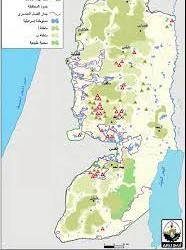
View On WordPress
#Aqueducts#Barrier#development#Groundwater#Palestine#Rain#Springs#Surface water#فلسطين.#water resources#West Bank#الموارد المائية#المياه الجوفية#المياه السطحية#الينابيع#الأمطار#الأحواض المائية#التنمية#الجدار العازل#الضفة الغربية
0 notes
Text
الإمكانيات المائية الحالية في الضفة الغربية (فلسطين) وسبل تنميتها
الإمكانيات المائية الحالية في الضفة الغربية (فلسطين) وسبل تنميتها
الإمكانيات المائية الحالية في الضفة الغربية (فلسطين) وسبل تنميتها
الكاتب : الدعاجنة حجازي
الملخص:
تعاني الضفة الغربية شحاً كبيراً في المياه، ما اضطر الكثير من أهاليها للاعتماد بشكل دائم تقريباً على شراء هذه المياه نظرا لمحدودية مصادر المياه الموجودة والتغيرات المناخية التي تؤثر بشكل كبير على نوعية وكمية المياه، هذا ويتصف الوضع…
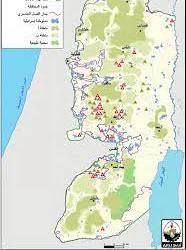
View On WordPress
#Aqueducts#Barrier#development#Groundwater#Palestine#Rain#Springs#Surface water#فلسطين.#water resources#West Bank#الموارد المائية#المياه الجوفية#المياه السطحية#الينابيع#الأمطار#الأحواض المائية#التنمية#الجدار العازل#الضفة الغربية
0 notes
Text
First-of-its-kind study defines boundaries of Angola’s water tower – The Mail & Guardian
1 note
·
View note
Text
Deep wells | @tranzitnotes |
0 notes